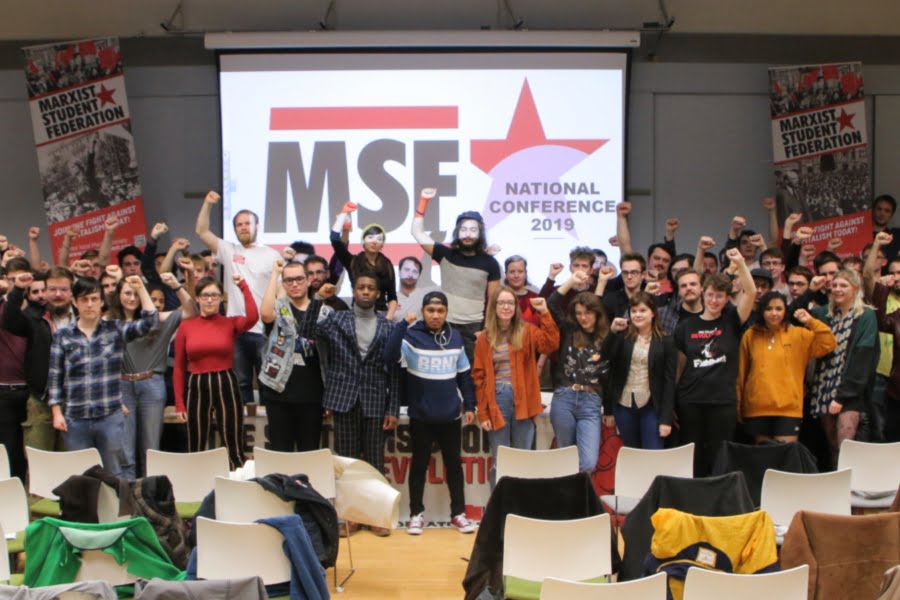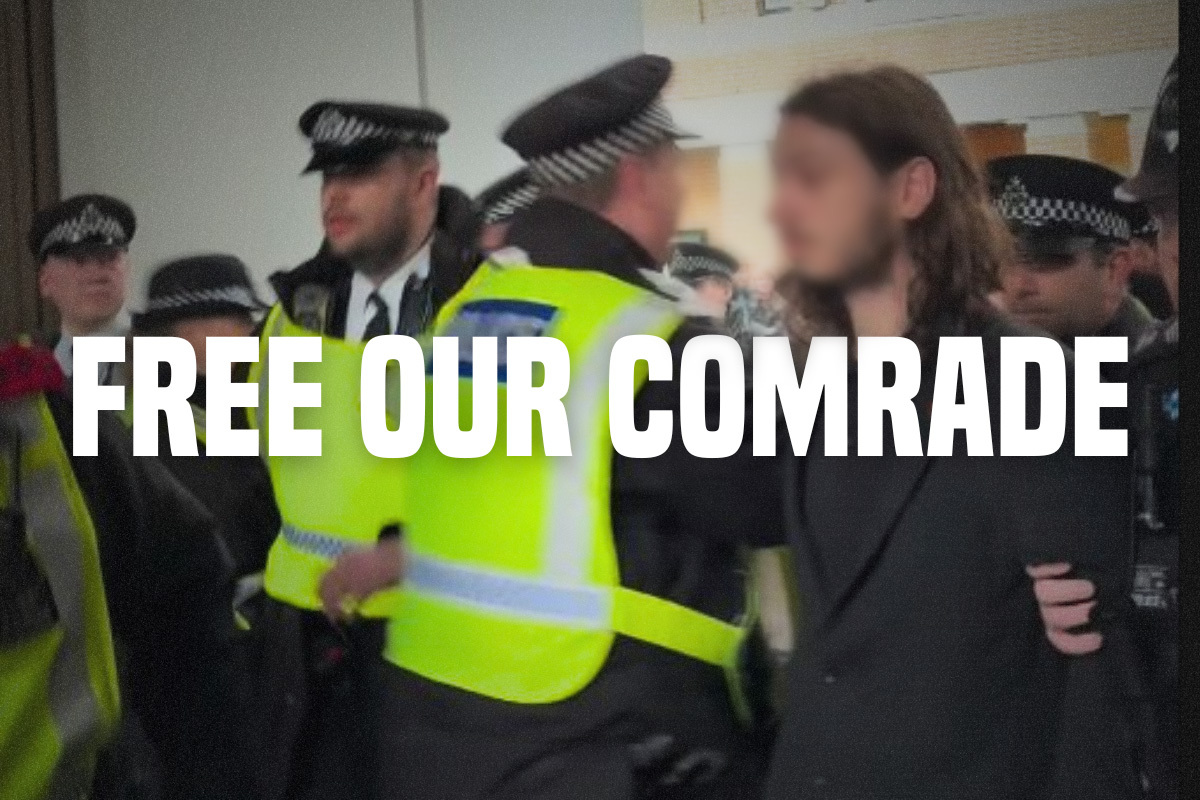This year’s national conference of the Marxist Student Federation demonstrated the confidence of the Marxists in Britain, who are enthusiastically fighting to bring a socialist Labour government to power.
Last weekend, on Saturday 16th Feb, over 110 Marxists from all over Britain met in London to discuss the nature of work under capitalism, the history and role of Marxists in the labour movement, and how students can support the fight for socialism. Just one day after the historic school student climate strike, the energy and militancy amongst the young was tangible.
Socialism
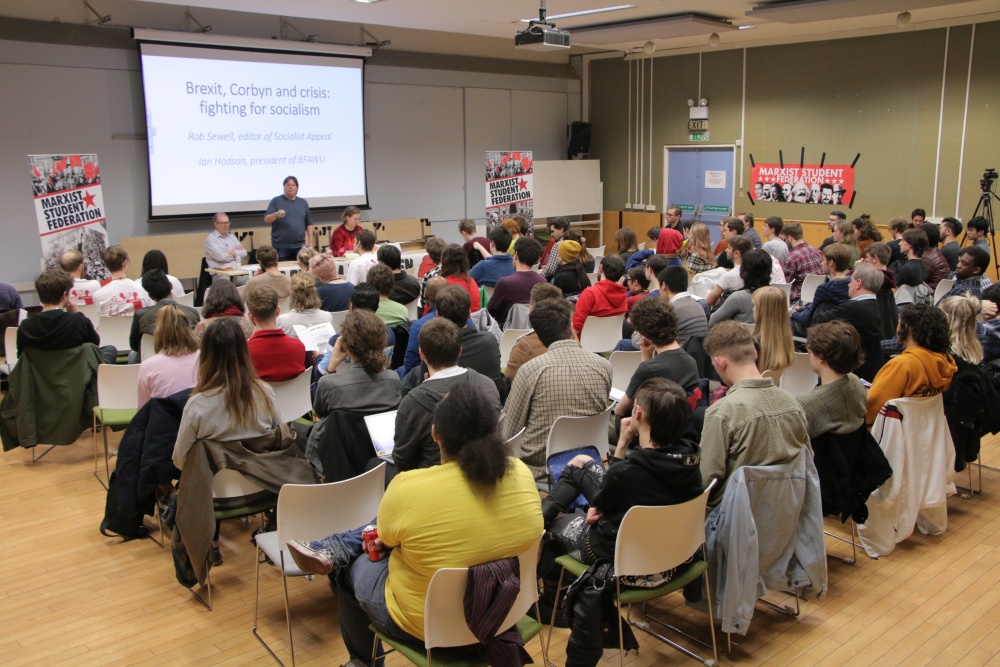 The day was kicked off by a session on Brexit, Corbyn and crisis: the fight for socialism with Ian Hodson (president of BFAWU, the bakers’ union) and Rob Sewell (editor of Socialist Appeal) speaking on the platform.
The day was kicked off by a session on Brexit, Corbyn and crisis: the fight for socialism with Ian Hodson (president of BFAWU, the bakers’ union) and Rob Sewell (editor of Socialist Appeal) speaking on the platform.
Ian spoke about the history of the BFAWU and the need for solidarity and collectivism. He made the point that we cannot look to the law as a protector of workers’ rights. The legislation that we have today is only there on the back off workers in the labour movement fighting collectively. Moreover, that we still have far more to win.
Rob in turn, explained the history of Marxism in the labour movement, including the role of the Marxists in new unionism in the 1880s. He explained how Clause 4 was first made part of the Labour Party constitution, and how it should be used to campaign for a socialist Labour government today.
Contributions from the conference attendees brought out other important points, reporting on the significance of the #YouthStrike4Climate movement and explaining what role students could play in helping to bring a Corbyn Labour government to power.
Exploitation
The next session centred on work under capitalism: fighting for our rights. Jan Michels from the Belgian Couriers Collective came to London specifically for the conference to address the audience about the struggles of workers in the ‘gig economy’.
Joe Attard, a former graduate teaching assistant campaigner at Kings’ College London, opened this session, speaking about the severe exploitation that occurs in universities. Higher education is the most casualised part of the public sector outside of medicine. A lot of young students, outraged by the exploitation they see in universities, are active in the fight against outsourcing.
However, Joe and other contributors from the floor explained that the role of students in these struggles must be an auxiliary one. Workers hold the power in their hands, but students can unite and fight alongside them.
Jan Michels spoke concretely about the exploitation in the gig economy. As a Deliveroo worker, he explained how Deliveroo alters its algorithms without offering any explanation to workers, who in turn are seeing a constant decline in their wages.
Many contributions from the floor highlighted the work that the Marxist societies are doing in supporting workers’ struggles on-and-off campus, including last year’s UCU dispute and the fight of precarious workers in London and elsewhere.
Solidarity
After a short break, an emergency motion was put to the conference in solidarity with the Bolivarian revolution and against the ongoing attempted coup in Venezuela.
An update on the situation was given by Jorge Martin from the Hands off Venezuela campaign, explaining what is happening and what the aims of US imperialism are. Jorge also answered the lies and misinformation that are continuously being spouted in relation to Venezuela.
The motion was passed unanimously, condemning the imperialist coup against the Maduro government.
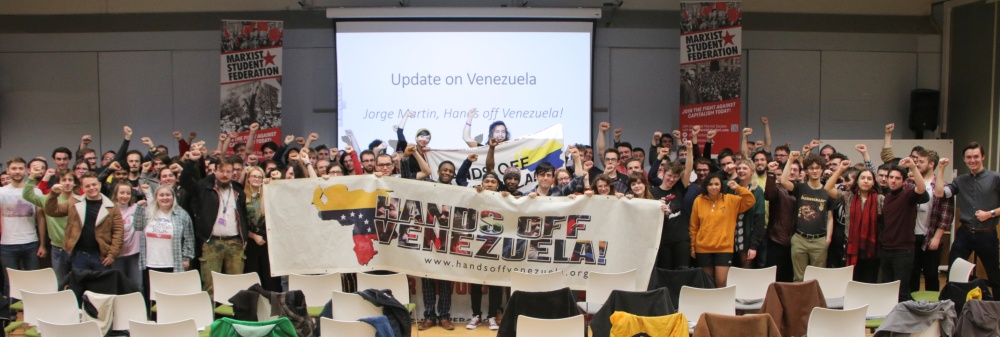
In addition, Ben Gliniecki spoke about the ongoing imprisonment of a Marxist student Rawal Asad in Multan, Pakistan, who was arrested for attending a peaceful protest.
Not only have the police lied and caused delays in processing Rawal’s appeal, but he has now been charged with sedition – and the judge has refused to hear his case. The MSF categorically condemns the actions of the Pakistani state and demands his release.
Powered by flickr embed.
Rosa
After this, Beatrice Palmieri (President of UCL Marxist society) led a discussion on Rosa Luxemburg, her life, and her ideas.
Luxemburg’s contributions to Marxism are a heritage we must claim. The Rosa’s assassination deprived the movement of the political leadership that was necessary to complete the German – and world – revolution.
Beatrice explained that the most fundamental lesson for Marxists to learn is that we need to build a revolutionary organisation capable of guiding the working class to victory.
Marxism
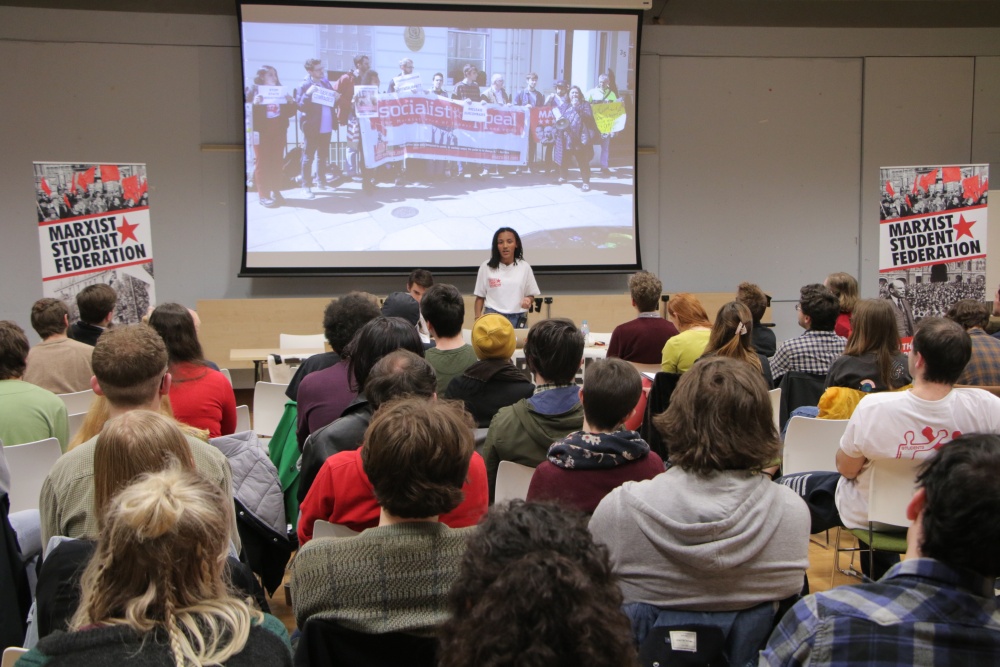 The final session was a report on the activity and plans of the MSF, introduced by Fiona Lali, national organiser of the MSF.
The final session was a report on the activity and plans of the MSF, introduced by Fiona Lali, national organiser of the MSF.
Fiona noted that that the MSF now has 32 societies across the UK, with 10 delegates (so far) attending the NUS conference later in April. This is a major cause of celebration.
A detailed report was given showing the work of the MSF in last year’s UCU dispute, with photos of comrades on the picket lines, at occupations, and at teach-outs, where we explained the need to transform the strike into a public sector general strike to bring down the government.
It was once again re-iterated that students – when isolated – don’t have the power to change society. However, in conjunction with the working class students can play an important role.
The need for Marxist societies to look beyond campus and decisively enter the labour movement is greater than ever.
Fiona finished by mentioning that Marx’s grave in Highgate cemetary has recently been vandalised – but that the ideas of Marxism cannot be destroyed. Indeed, these are alive and kicking, reflected in growing forward of the Marxist Student Federation.
The Marxists at this conference were more determined than ever build these forces and to fight to see socialism in our lifetime.

